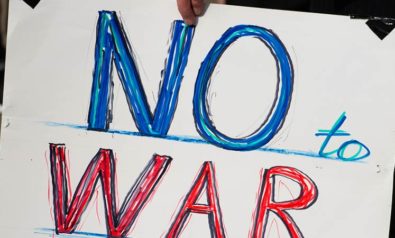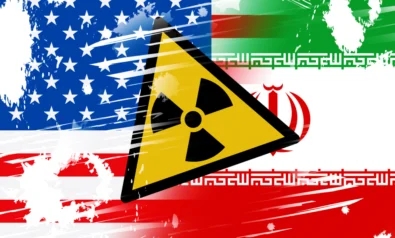For three days starting May 30, Saudi King Salman bin Abdul Aziz hosts Arab and Muslim leaders of countries comprising the Gulf Cooperation Council (GCC), Arab League and Organization of the Islamic Conference. The gathering was ostensibly called to address the region’s many issues, inter alia, Iran, Syria and the Israeli-Palestinian conflict, including Washington’s much discussed but little understood “deal of the century.”
Needless to say, it is Iran that is uppermost on Saudi minds, given recent barbs exchanged between the US and Iran and incidents in the Gulf.
Trouble Brewing… Again
To be sure, these exchanges are more than mere customary trifles seen over the past 40 years of frosty relations between the two countries. On the one hand, US President Donald Trump has vacillated between threatening “the official end of Iran” to asserting he doesn’t want a war. On the other, his national security adviser, John Bolton, seemingly drawing guidance from his own well-worn hawkish talking points, is pointing an accusatory finger at Iran for recent attacks on oil tankers and Saudi targets.
For its part, Iran has responded in kind, placing all the blame on Washington for the heightened tensions. Incidents in the Middle East have lent a sharp edge to the uncertainty: explosions on four oil tankers on May 12 in the Gulf of Oman and rocket attacks against Saudi oil targets on May 14 by Iran-backed Houthi rebels. Earlier in May, the US dispatched the USS Abraham Lincoln aircraft carrier group and four B-52 bombers to the troubled region in light of unspecified threats, presumably from Iran.
So, the tension is indeed palpable, only made more so by the Trump administration’s “maximum pressure” sanctions regime imposed on Iran since the president withdrew the US from the nuclear accord, aka the Joint Comprehensive Plan of Action (JCPOA), in 2018. The virulently anti-Iranian leaderships of Saudi Arabia and the United Arab Emirates — not to mention Israel — have succeeded in riveting American attention on Iran. They would be justified in asking themselves, however, whether war with the Islamic Republic is necessarily in their best interests.
Thus the speculation holds that the Mecca confab is meant to (a) ratchet down tensions by invoking summit diplomacy — though the Iranians are not in attendance — and (b) get all Muslims/Arabs on board with a Saudi approach. Sparking all this hopeful hearsay is King Salman’s invitation to Qatari Emir Sheikh Tamim bin Hamad al-Thani to attend the meetings. The kingdom effectively ostracized Qatar from the GCC bloc and severed all ties in 2017 on account of Qatar’s relationship with Iran as well as its friendly ties with the Muslim Brotherhood and other groups.
Could the king be reaching out to repair that relationship and possibly seek Qatar’s intervention in dialing back Gulf war talk? The emir did not travel to Mecca but sent his prime minister, Sheikh Abdullah bin Nasser al-Thani, in his place. Qatar did not bend in the face of pressure from Saudi Arabia, joined by the UAE, Bahrain and Egypt, and continues to maintain close ties with Tehran. Theoretically at least then, the idea of inviting Qatar back into the fold and employing Qatari diplomacy between the Gulf states and Iran would seem plausible and even sensible.
Balloon Punctured
Reports of the first day’s proceedings in Mecca, however, would seem to dispel the notion. King Salman used the host’s podium to summon all nations to confront Iran and blamed Tehran for the recent attacks on tankers and oil facilities. While he seemed to welcome the Qatari prime minister to the meeting — not an extraordinary gesture by the Custodian of the Two Holy Places to a fellow Muslim visiting Mecca — his son, Crown Prince Mohammad bin Salman, the most ardent critic of Iran, gave the prime minister little more than a curt, perfunctory welcome. This is hardly the stuff of rapprochement with Qatar, much less Iran.
 Of course, the king and prime minister might easily have had a tête-à-tête on the margins of Mecca to discuss diplomacy. One can only hope. But if that is his MO, he might also reach out to Washington. For all its chest-thumping on the effects of its Iran sanctions, the US has seen no success in actually moving the needle when it comes to Iranian behavior in the region or willingness to negotiate with the Trump administration.
Of course, the king and prime minister might easily have had a tête-à-tête on the margins of Mecca to discuss diplomacy. One can only hope. But if that is his MO, he might also reach out to Washington. For all its chest-thumping on the effects of its Iran sanctions, the US has seen no success in actually moving the needle when it comes to Iranian behavior in the region or willingness to negotiate with the Trump administration.
The sanctions, which indeed have exacted a high toll on Iran’s economy, are less about hurting Tehran than getting it to address genuine issues, like its nuclear program — effectively mothballed for the time being under the JCPOA — and interference in regional affairs. For the sanctions to really work, there must by a diplomatic track, a political off-ramp that allows the Iranians to address Washington’s and their own concerns short of conflict. At present, that doesn’t exist.
Two to Tango… and Conduct Diplomacy
Trump has said he’s willing to talk to Tehran. Iran has so far maintained that it’s not interested in a JCPOA do-over. Employing Qatar — another possibility would be Oman, which helped kick off the first nuclear accord talks in 2012 — which maintains good relations not only with Tehran but also Washington, might be a useful gambit, if that is what King Salman genuinely wants. But, like the tango, diplomacy requires two to work, in this case, Iran and the US. Is the king making an effort to get Washington to engage? There’s nothing to suggest that’s the case for now.
The region is in desperate need of genuine diplomacy, and not just on the Iran question. The Trump administration seems little interested in such an approach, unless it involves the president himself. But cautious, deliberate, quiet and purposeful diplomacy is a sure-fire way to begin to resolve differences. At least, it would be a welcome respite from the ugly, unseemly rhetoric between Washington and Tehran and tonic to the region’s frayed nerves.
But the world will have to await concrete outcomes from Mecca before it can begin to breathe more easily. Early indications don’t bode well.
The views expressed in this article are the author’s own and do not necessarily reflect Fair Observer’s editorial policy.
Support Fair Observer
We rely on your support for our independence, diversity and quality.
For more than 10 years, Fair Observer has been free, fair and independent. No billionaire owns us, no advertisers control us. We are a reader-supported nonprofit. Unlike many other publications, we keep our content free for readers regardless of where they live or whether they can afford to pay. We have no paywalls and no ads.
In the post-truth era of fake news, echo chambers and filter bubbles, we publish a plurality of perspectives from around the world. Anyone can publish with us, but everyone goes through a rigorous editorial process. So, you get fact-checked, well-reasoned content instead of noise.
We publish 2,500+ voices from 90+ countries. We also conduct education and training programs
on subjects ranging from digital media and journalism to writing and critical thinking. This
doesn’t come cheap. Servers, editors, trainers and web developers cost
money.
Please consider supporting us on a regular basis as a recurring donor or a
sustaining member.
Will you support FO’s journalism?
We rely on your support for our independence, diversity and quality.














